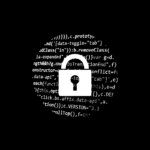States encourage more cyber security professionals

Cyber vulnerability is a serious and fast evolving problem for all industries, but it poses a particular threat to Australia’s high-tech multi-billion-dollar defence industry. A 2016 study found that cybercrime is now the world’s seventh most serious economic threat and will cost Australia an estimated A$16 billion over the next decade and incur a global toll of US$294 billion.
Criminal and state sponsored attacks on Australian defence contractors and government agencies are launched constantly and can have a devastating effect on national security as well as individual firms. It is therefore vital that defence sector firms and suppliers protect themselves and the sensitive technical and supply chain information in their systems.
Speaking at a ‘Cyber Ready’ forum organised by Defence SA, South Australia’s Minister for Defence and Space Industries, Martin Hamilton-Smith stressed the importance of preparing the next generation of cyber security professionals for the defence industry.
The forum, hosted at Adelaide’s TAFE SA, included an introduction to TAFE SA’s new cyber courses and an education and skills panel which discussed ways to develop the cyber security skills in growing demand in the US$126 billion global cyber security market.
The forum was the latest event in the state government’s Cyber Ready programme which looks to build cyber awareness and security among South Australian companies, including those bidding for work in the defence industry.
“South Australia is home to some of the world’s most complex projects, including the upcoming naval shipbuilding program, so it is important our companies are armed with cyber-ready capabilities,” Minister Hamilton-Smith said. “The state has been working to reinvent itself through defence and shipbuilding contracts. But what’s also emerged is a fierce start-up culture and a very strong cyber security sector. For example, we are now home to major cyber security firms including NEC and Veroguard.”
The theft of sensitive information regarding the new F-35 Joint Strike Fighter from an Adelaide aerospace supplier earlier this year highlights the risks that lax cyber security practises pose to defence companies.
“Just recently we saw how cyber vulnerability is a very real and serious threat in the defence industry, with hackers stealing sensitive information on several major projects, including the Joint Strike Fighter,” Minister Hamilton-Smith said. “We are working to establish South Australia as a hub for cyber security, which will not only protect our sensitive information and defence projects from cyber-attacks, but generate huge employment opportunities for our local workforce.”
South Australia is currently establishing an Australian Cyber Security Growth Network node, which will boost cyber capabilities, encourage innovation and improve collaboration efforts with other states and territory centres across the AustCyber network.
Minister Hamilton-Smith said the state government is working with industry, TAFE SA and other educational institutions to improve much-needed skillsets and career opportunities for the cyber security sector. “Working closely with industry and educational institutions, we will ensure our young people are equipped with cyber security skills and are aware of the high-tech career opportunities in cyber security right here in SA,” he told attendees.
South Australia is home to some of the world’s most complex and sophisticated defence projects and firms with cyber-ready capabilities give themselves a competitive edge to win supply chain work for upcoming defence programs.
The state is an increasingly important centre for defence-related cyber security. Earlier this year global technology giant NEC Australia opened a $4.38 million Global Security Intelligence Centre (GSIC) in Adelaide to address growing global demand. Melbourne Cyber security company VeroGuard Systems recently announced plans to build an advanced manufacturing facility in Adelaide’s northern suburbs and create almost 600 new jobs in its first three years. The State Government is contributing just over $6 million to the project through its Economic Investment Fund and expects many former Holden workers to find employment at the centre.
The Defence Science and Technology Group’s Cyber and Electronic Warfare Division is headquartered in Adelaide at the Edinburgh Defence Precinct, alongside the RAAF’s cyber security focussed Number 462 Squadron which sits within the Information Warfare Wing of RAAF’s Aerospace Operational Support Group.
South Australian companies specialising in cyber security include CSC Pty Ltd and Ebor Computing while the state’s universities also encompass cyber security in their teaching and research programs. Carnegie Mellon’s Asia-Pacific Software Engineering Institute is based in Adelaide, for example, and works to improve software-intensive systems. The state’s Data to Decisions Cooperative Research Centre brings together researchers and industry to generate big data capability which also has the potential to make the nation safer and more secure.
However, despite these high profile, and highly expensive, counter measures, the Adelaide hack proved that the failure of firms to take even the simplest of security measures poses the greatest threat to commercial and national security. Cyber-security needs government investment and trained professionals, but it also relies on every manager, employee and citizen playing their part to keep their companies safe from intrusion.
Victoria looks to student training
Victoria is also looking to give students the skills they need to secure cyber security jobs in telecommunications, banking and defence.
Box Hill Institute is leading the development of a Cyber Security National Program to standardise national qualifications based on its own advanced diploma in cyber security. The programme is supported by $4.7 million from the $50 million TAFE Back to Work fund and was developed with industry.
Launching at the start of 2018, the Cyber Security National Program will offer on-the-job experience for students to help address the national skills shortage and participating TAFEs will form local industry reference groups to ensure course content and delivery meets industry needs. State TAFEs are now pressuring the federal government to fund a national cyber security internship program.
Philip Dalidakis, Victoria’s Minister for Innovation and the Digital Economy, claims that “Victoria is leading Australia when it comes to cyber security. We’re attracting more investment so Victorians are protected from cyber crime and winning a larger share of the booming global cyber security sector.”
Victoria hosts CSIRO’s Data61 Cyber Security and Innovation Hub, which opened in Docklands in 2016 and will create 140 specialist jobs. Victoria’s Minister for Training and Skills Gayle Tierney said the need for cyber security graduates is increasing, with cyber crime costing the nation’s economy about $17 billion a year. “It’s vital we have job ready graduates to fight the increasing threat of cyber crime.”








